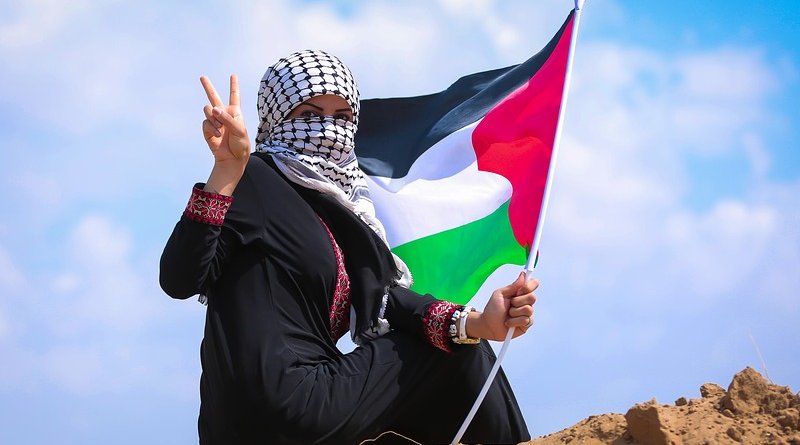Palestinians Must Unite Despite Threat Of Further Division – OpEd
By Ray Hanania
US President Donald Trump’s “deal of the century” peace plan has raised an issue many Arabs would prefer to avoid discussing. It was embraced by Israeli Prime Minister Benjamin Netanyahu because of its lopsided benefits for Israel and shortcomings for Palestinians. And it included one issue that has sharply divided Palestinians: Proposing that 350,000 Palestinian Arabs who live in the Galilee Triangle in northern Israel be stripped of their Israeli citizenship and moved into a Palestine state through a land swap. The ugly truth is that many would prefer to be second-class citizens inside Israel than live in the uncertainty of the proposed Palestinian state.
The Trump plan states that the Palestinian communities in the Galilee Triangle “were originally designated to fall under Jordanian control during the negotiations of the Armistice Line of 1949, but ultimately were retained by Israel for military reasons that have since been mitigated. The vision contemplates the possibility, subject to agreement of the parties, that the borders of Israel will be redrawn such that the Triangle communities become part of the state of Palestine.”
But many polls over the years have confirmed that a majority of the Palestinians who live in Israel and have Israeli citizenship would rather retain that status quo. A poll taken in August 2000 of residents of the Arab community of Umm Al-Fahm — an all-Palestinian village on the Israeli side of the 1949 armistice line (the Green Line) — revealed that 83 percent said they would rather remain under Israeli authority. Umm al-Fahm is one of the areas that, under the Trump plan, would be traded to Palestine.
In 2010, another poll focused on Palestinians living in East Jerusalem. Of those surveyed, 40 percent said they would prefer to remain under Israeli authority.
Why? Well, the Arab world is overwhelmingly Muslim and Christians are a very small minority. But in Israel — even though Christian Palestinians are abused just as much by Israel’s racist policies, laws and societal norms as Muslims — the Christian community inside Israel has a larger plurality. In other words, Christians in Israel are a larger percentage of the population and that gives them a sense of being better able to stand together as a community.
Christians are taught to “turn the other cheek,” meaning do not fight or resist, but instead take the abuse. Rather than fight, many just leave, which may be one reason why the Christian population in Israel and the Arab world has shrunk so dramatically.
Being a Christian Palestinian myself, I know that the Christians are far less organized and less active in fighting for Palestinian rights than Muslim Palestinians are. In fact, I might even argue that many Jews inside Israel and in the West are more aggressive in their advocacy for Palestinian rights than Christian Palestinians are.
I am not sure why this phenomenon exists but I can hypothesize. As a Christian Palestinian activist with a strong opinion, I am often excluded from the activist circles that want Christian Palestinians to “fall into line” and not challenge the system. This might explain why many Palestinians are opposed to Trump’s suggestion that those in the Galilee Triangle should accept being placed under Palestinian state control.
The surveys mentioned above would not have been a surprise to Netanyahu, who understands the reality of how many Palestinian citizens feel. He likely recognizes that suggesting shifting the citizenship of the Palestinian Arabs who live inside the Galilee Triangle will further divide the Palestinians.
But the truth is that Palestinians are already so divided that any further splits are essentially meaningless. It can’t get any worse than it already is.
What Palestinians need is a leader who can bring them all together — inside and outside of Israel — and give them hope. We need a “secular messiah” who can lead the Palestinians out of bondage and into the promised land of statehood that its citizens can view with confidence and even security.
Any Palestinian who dares to challenge some of the pillars of Palestinian extremism is bullied and ostracized. These pillars include opposition to any of: Normalization; compromising on the right of return; and accepting the fact that the suffering of Palestinians comes not only as a result of Israel’s racist policies, but also due to the actions of Palestinian extremists who would rather blow themselves up to harm their foes than to embrace compromise with their sworn enemy.
It doesn’t matter what Israelis do or how they think. What matters most is what Palestinians do and what they think. If Palestinians can’t find a way to tolerate differing views without responding with anger and emotion, or to come together to form one strong, cohesive movement, there will never be a peace plan that they can accept. Living in the status quo therefore becomes their only option.

